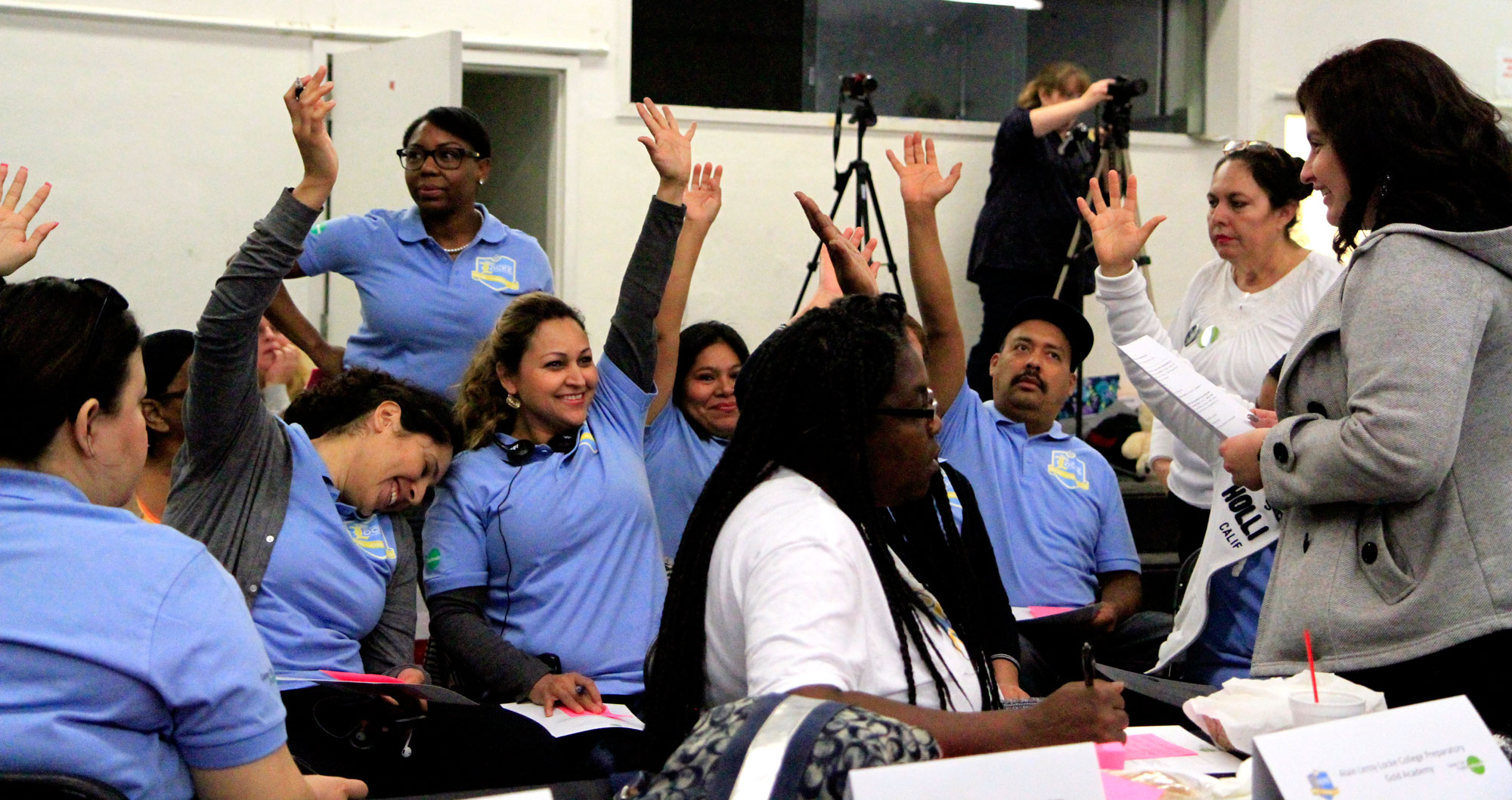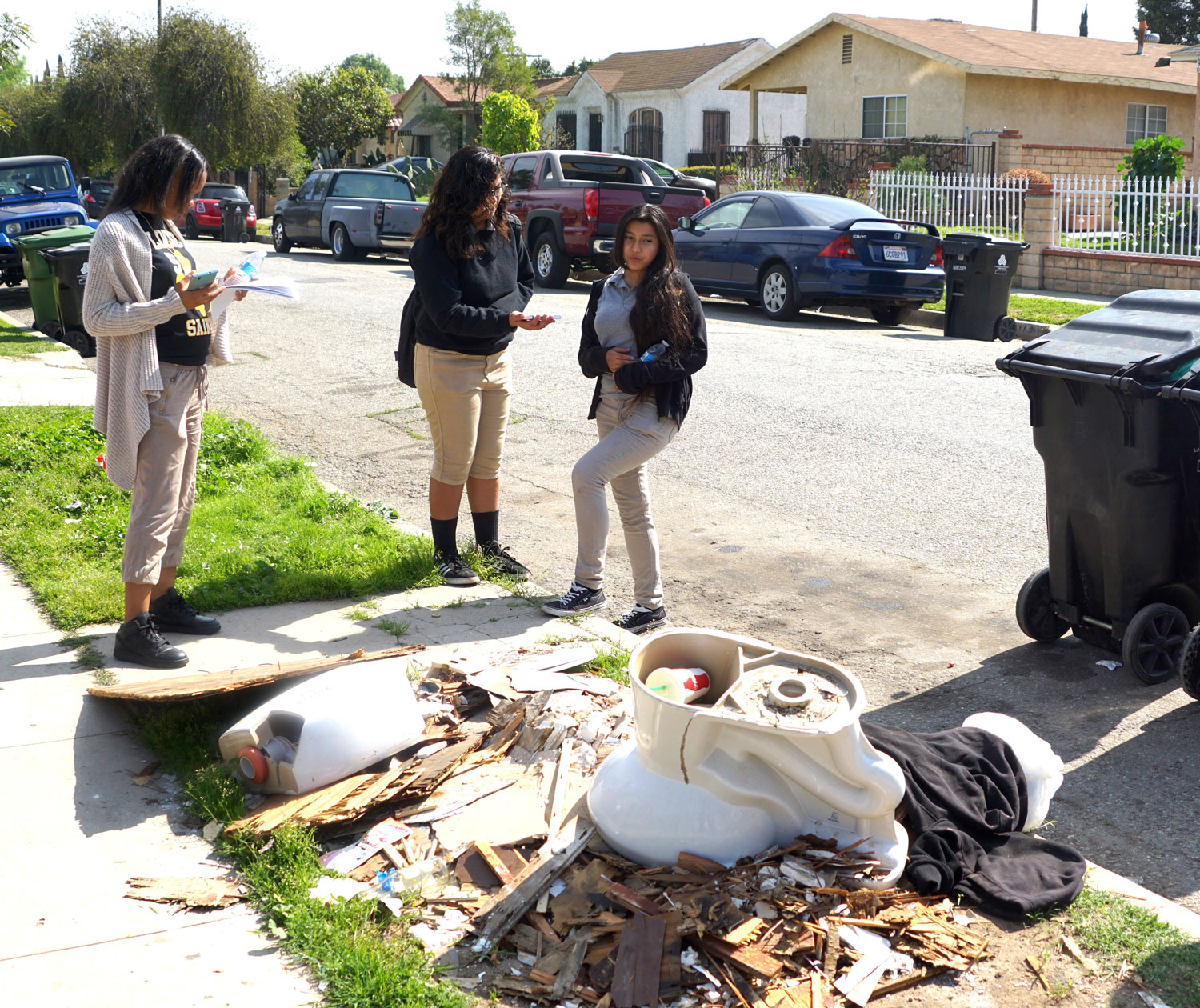5 Capitals Needed for a Healthy Community

United Parents Delegates vote on the decisions that directly effect their community
By: Larry Fondation, Director of Community Engagement
Communities in general benefit greatly from diversity – diversity of people, of businesses, of available services, diversity of choice. So too do communities gain from having access to multiple kinds of capital. Capital is not merely a finance term.
In order for a community truly to thrive, it must possess five different kinds of capital:
1. Human;
2. Social;
3. Political;
4. Intellectual; and,
5. Financial.
No single form of capital can be dominant; unrestrained by the others, each can create its own types of imbalance, and accompanying problems. Conversely, none can be absent either. The five capitals are to a healthy human community what vital organs are to a healthy human body – both completely necessary and necessarily in balance. In low-income areas, where Green Dot locates its secondary schools, the need to nurture the 5 forms of capital is as great as it has ever been.
Human Capital
The development of Human Capital is an investment in the capacity and talents of individuals. It entails systematic education and skill development (in adults, for purposes of this discussion). It would include adult literacy, teaching English as a Second Language (ESL), and job training, among other programs.
Social Capital
Social Capital, a term popularized by Harvard professor Robert Putnam, means simply our social “glue,” the ties of neighborhood and community. In the areas where Green Dot schools are located, there has often been a decline in the prevalence and power of mediating institutions – voluntary associations where people gather. People from low-income areas often struggle alone with their problems, now more than ever as government institutions face increasingly severe budget constraints. The need to fill the gap is growing.
Political Capital
The British political philosopher Bernard Crick writes that “the absence of politics begets violence.” This is as true on the streets of South or East Los Angeles as it is anywhere else around the globe. Members of a community must have “public lives” (as well as private lives), and must participate in “politics” – not only at the ballot box, but – even more importantly – in their own neighborhoods, from the living room to the school auditorium to the office of the local City Council member. Political Capital is the ability to act in concert for the good of the whole. It is often in short supply in distressed areas, but that must change.
Intellectual Capital
Intellectual Capital is harnessed brainpower. Many people in the United States and abroad are paid to think. Very few, however, are paid to think about, with, and for the poor. People living on or below the poverty line do not have lobbyists, spin doctors, or endowed University chairs. What is needed is a concerted effort to link up the resources of schools, universities, and think-tanks — to develop pragmatic ideas, not ivory tower theories — and to marry such intellectual resources to the creative spirit and entrepreneurial energies of low income neighborhoods, creating an environment of experimentation, well-founded optimism, and mutual respect across diverse communities.
Financial Capital
Financial Capital is not hand-outs or government programs, though both may be necessary in the short-run. In a given community, money takes on two primary forms for social purposes – investments made and credits extended. The status of these two sides of the coin is woeful in most neighborhoods in which Green Dot Public Schools operates. In order to strengthen families, we must explore opportunities for job creation and wealth creation.
United Parents, a movement of families at Green Dot’s schools, is trying to reweave the social fabric in the communities we serve. We conduct much of our work, and have focused most of our issues, with the five capitals in mind. Accordingly, throughout our regions, we have brought together elected officials, appointed officials, law enforcement, community-based organizations, academics (from USC, Occidental College, and our community colleges) and the private sector to help us solve the vexing problems too many of our families face – high rates of crime, illegal dumping of trash in our neighborhoods, inadequate job opportunities, and more.

Students report illegal dumping
We know that powerlessness precedes poverty. Our core work is teaching low income families how to engage in and influence civic life. Through the building of our organization and sustained public action, we will build the necessary balance of capitals in order for our communities to thrive.
